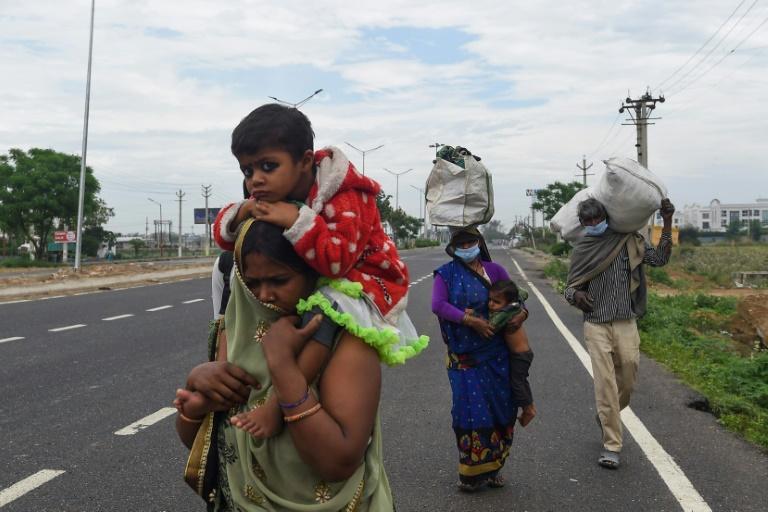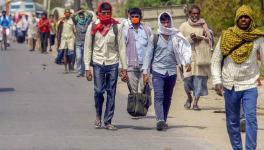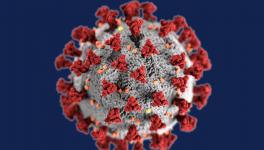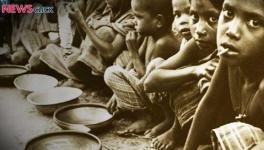Covid-19 Will Change Our World: India’s Villages Need Help to Cope

The Covid-19 pandemic has brought out with great clarity—yet again—that India needs to strengthen the focus of its socio-economic development in rural areas to augmenting our natural resources and regenerating them through decentralised approaches. Through these, there is a need to focus on ensure access to basic services to all of rural India.
For many Indians, the incessant flow of information on what needs to be done at an individual level to safeguard oneself during this pandemic, and how a strong immune system can reduce the severity of the impact of the Novel Coronavirus, was, at best, a cruel joke.
For instance, one of the earliest ways suggested to stay safe and avoid getting infected is to put into practice the habit of hand-washing. The World Health Organization (WHO), doctors, celebrities, sanitiser and soap manufacturers and many others used every media available source to spread awareness on the importance of washing hands for 20 seconds. Yet, the sad reality is that large parts of rural India do not have access to water, let alone clean water to wash hands in.
According to the Niti Aayog, in 2019, some 75% of households did not even have drinking water on their premises and about 84% households did not have access to piped drinking water. In addition, barely 16% of rural households have access to piped water. The Niti Aayog also stated that some 600 million Indians face acute water shortages. Last year, the Jal Shakti Ministry stated in Parliament that at least 189.7 million rural habitations are getting less that 40 litres of water per person per day, which is the norm while implementing rural water-supply schemes. So, getting water for washing hands is a luxury that only a few can afford.
Rural distress migration to urban areas is a regular phenomenon as a result of the lack of livelihood opportunities in villages. The plight of these migrants as they undertook what is now being referred as the Great Indian March, as a result of the immediate lockdown has been widely reported by various media sources. Lakhs of migrants began walking home as the sudden lockdown left them bereft of accommodation, transport, work and food. In several places, ordinary people and civil society stepped in to offer whatever support they could. They did their bit to alleviate this humanitarian crisis.
While some migrants were able to reach home or were hustled into shelters, the possibility of their contracting Covid-19 infections is real. On 31 March, the Centre informed the Supreme Court that almost a third of migrants returning to their home-towns and villages could be infected with the Novel Coronavirus.
The water scarcity in rural areas and growing number of droughts and floods forces more and more of the poor to migrate to urban areas in search of work and an income to provide sustenance for themselves and their families. “Villages are losing their pani (water), jawaani (youth) and kisani (agriculturists),” rues Stockholm award winner, Rajendra Singh, Chairperson, Tarun Bharat Sangh. Covid-19 strongly reiterates the need to support agriculture and augment water resources through water conservation and the efficient use of water. Not only does this help keep families where they are, but also generates local food security and livelihoods in situ. If food is locally produced, it also becomes available for local self consumption and sale; thus averting the challenge that authorities face today as they try to implement the lockdown.
Another factor that Covid-19 highlights is the link between the severity of the disease and personal immunity. Nutrition plays a key role in boosting immunity. Nutrition is a critical determinant of immune responses in the human body. A diet balanced and adequate in terms of vitamins, minerals and proteins enhances resistance against infections.
Unfortunately, malnutrition in India is among the highest in the world. Some 38.4% children are stunted or short for their age, 21% are wasted, that is, they have low weight for their height and 35.7% are underweight. In addition, some 53% of Indian women and 58.4% of children between 6 months and 5 years of age are anaemic.
A major reason for malnutrition in India is economic inequality and low social status. As a result, diets are seriously lacking in nutritive elements. Vulnerability to disease increases when poor sanitation and hygiene couples with lack of safe drinking water. As rural areas have a higher incidence of malnutrition, the solution lies in local food security—making healthy food available through promoting cultivation of local produce. Some of the models are homestead gardening, school-based nutrition gardening and community nutrition gardening.
These gardens can grow vegetables and fruits that can help people ride over India’s wide nutrition gap. “We support villages in this drought-prone area through water conservation and improved agricultural practices and also work with women and schools to develop nutritious gardens,” informs Sanjay Singh, one of the founders of Parmarth, a civil society organisation working in Bundelkhand region of Madhya Pradesh and Uttar Pradesh, which supports horticulture-based community kitchen gardens in areas where they work. Green vegetables are made available in the regular diet by the self-made community kitchen gardens that have come up. In Sheopur and Chhatarpur districts of Madhya Pradesh, Poshan sahelis or ‘nutrition friends’ spread awareness in the villages on the need for a balanced diet and how this can be achieved through government programs as well as self-cultivation and purchase.
As Coronavirus has put immense pressure on societies globally. With little scientific evidence available on whether the virus will continue to wreak havoc, or for how long, it is imperative that we continue to address local questions and problems with far more seriousness that ever before. Lives as we know it will change after the Covid-19 pandemic. This much is a given. The matter now is that we must prepare to face it. Each village and every panchayat must attain self-sufficiency in water security, food and nutrition security so that the residents of these units can afford to not crowd into trains and buses in search of greener pastures elsewhere—not at the great social, health and economic cost it now entails.
The writer has worked for more than 20 years on water resources and is now associated with the Safai Karmachari Andolan and the Tarun Bharat Sangh. The views are personal.
Get the latest reports & analysis with people's perspective on Protests, movements & deep analytical videos, discussions of the current affairs in your Telegram app. Subscribe to NewsClick's Telegram channel & get Real-Time updates on stories, as they get published on our website.
























